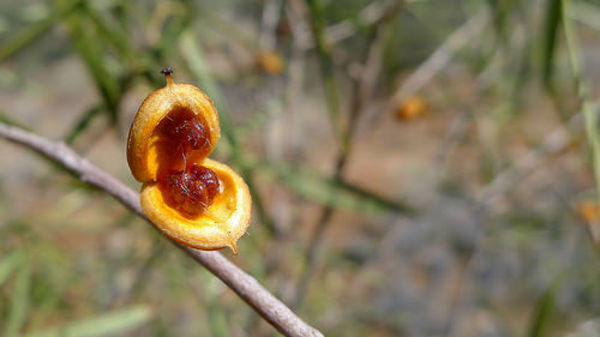Cancer Cure or Just Plain Quackery? All About Amygdalin

You probably never hear of it and it may sound like something rather impractical, but when push comes to shove, amygdalin may be the answer to none other than cancer itself. That’s right – cancer. The question is whether this bitter almond extract is all alternative therapy enthusiasts say it is cracked up to be or, well, not so much. To this day, the question remains: is amygdalin a cancer cure or just a product of unfounded fanfare?
Amygdalin, also referred to as vitamin B17 or laetrile, is an isolated glycoside sourced from bitter almonds. Other sources include apricot, black cherries and apples. Since the 1950s, amygdalin has been lauded for its anti-cancerous effects. In 1971 it was banned, despite having been proven to work as a cure for cancer, as it was deemed to pose a serious cyanide poisoning threat. To this day, it remains unapproved by the U.S. Food and Drug Administration as a medical treatment. Research seems to pull towards both directions, both espousing and debunking the substance.
For thousands of years, bitter almonds have been used by many cultures – the Egyptians, Chinese and Pueblo Indians – as a natural medical remedy. In the 1920s, Ernst T. Krebs tested an extract from apricot pits to treat cancer, but it proved to be too toxic for human consumption. In 1952, his son went on to extract amygdalin from bitter almonds, but created a chemically-modified version he called laetrile. Ernst T. Krebs Jr. said that laetrile was more potent in fighting cancer than amygdalin. Often, the two are used interchangeably, but they bear a slight distinction.
Laetrile has long been considered an effective alternative chemotherapy treatment. The Hunza and the Karakorum peoples in the region bordering Pakistan, India and China have a diet rich in amygdalin and are known to be cancer free. The mechanism is not fully understood but there are theories to how laetrile works. Cancer cells contain an enzyme that purportedly splits the laetrile molecule, releasing the cyanide in it, which kills cancer cells but is deemed harmless to healthy cells. Another theory is that laetrile simply fulfills a deficiency in vitamin B17.
Studies conducted starting in the late 1950s revealed that laetrile had no anti-tumor effects. In 1977, the FDA put sanctions on the sale of laetrile because of the risk of cyanide poisoning. Between the 1950s and 1970s, laetrile grew in popularity. Because of this, the National Cancer Institute asked doctors from around the U.S. to submit positive past results using laetrile as a cancer treatment. Of the 400,000 doctors and practitioners, only 93 submitted “positive” results. Many other studies came up empty-handed, but many point to the botched interests of pharmaceutical companies and the government as reason for this. In the U.S. it is illegal to transport laetrile across state lines and to use it in states that do not allow it. However, products labeled as laetrile and amygdalin are able to be purchased online.
Meanwhile, many continue to boast the efficacy of laetrile, although reported positive results have not been reviewed or repeated by the scientific community. Thus, whether or not amygdalin has an anti-tumor effect has never been settled.
Amygdalin is praised as much as it is “debunked”. In the end, it comes down to whether you can separate fact from hearsay or pharmaceutical giants’ interests from sound scientific research results. Meanwhile, cyanide toxicity is a real risk and thus consumption of bitter almonds and other sources of amygdalin should be regulated, particularly among children, elders and women who are pregnant or nursing.
Related on Organic Authority
The 6 Best Food-Based Vitamins and Supplements That Actually Work
The Dark Side of America’s Dietary Supplement Addiction
Daily Vitamins: Do They Work Better Than a Healthy Diet?
Photo Credit: ” target=”_blank”>John Tann


